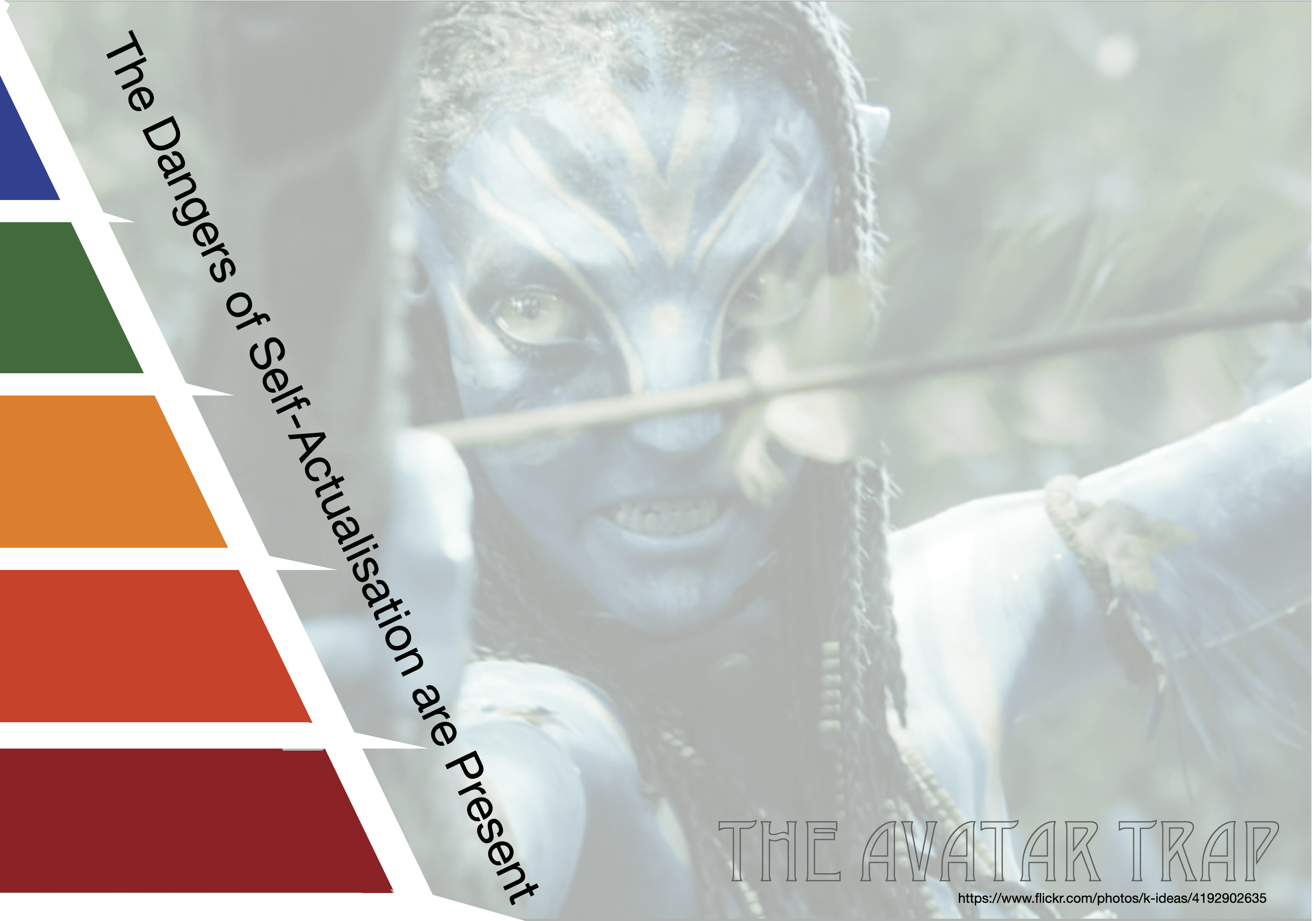In search of meaning
There are several thought leaders who I follow, such as John Vervaeke and Jamie Wheal, who’ve also been writing that, as a society, we are experiencing a crisis of meaning. Many people either feel that their life is missing meaningfulness or are dejected by the insolvability of the big and dramatic causes they’re bent on following, such as climate change, racism and inequity… Moreover, in today’s topsy turvy post-pandemic world, given preoccupations with the economy, there is also a worry about personal finances and job security that is causing a good amount of heartache. As a result of these factors, we have seen a consequential rise in mental health conditions. People feel empty despite living in an era of relative abundance. Surely the insecurity and despondence has been exacerbated by financial concerns, a war on our doorstep and geopolitical fracturing. I’ve been writing about the need for more meaningfulness for well over a decade, inspired in particular by my conversations with over one hundred veterans of WWII. For most of us, the challenge is finding meaningfulness in our lives and at work. Given the number of hours spent working, I’ve long held that one ought to seek a sense of fulfilment in our jobs. There is glory in work well done. As I wrote with my coauthor Caleb Storkey in our book, Futureproof, there are five ways to heighten meaningfulness at work. We included the following chart in Chapter 1:
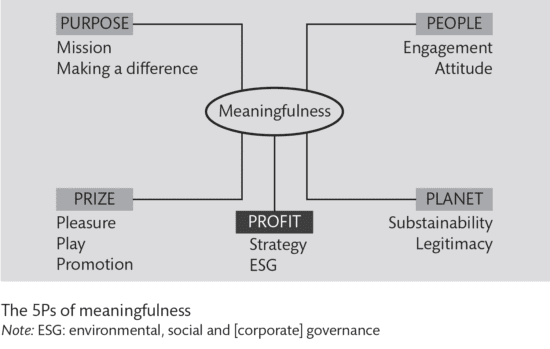
These 5 Ps, Prize, Profit, Planet, People and Purpose, provide varying levels of personal enrichment and fulfilment. Business leaders should consider carefully how to bring these 5 areas into play in their business. I note that, in the equation of meaningfulness and pleasure at work, there is often a trade-off in terms of the pay. On the x axis, you can imagine how activities like volunteering for a good cause may feel super fulfilling, but the pay is meek. As the pay improves there is often a corresponding increase in pressure and stress; and, in areas like financial services, a higher amount of unfriendliness and hours worked.
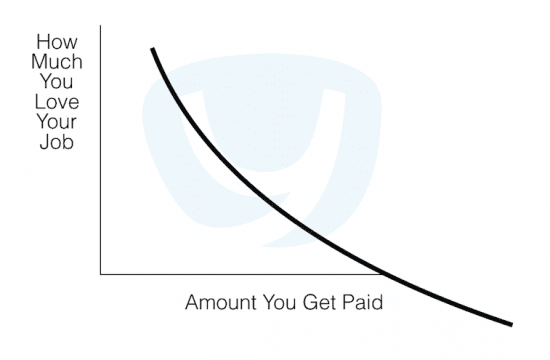
The lure of self-actualisation
People are thinking twice about why and where they are working. This has manifested itself in the phenomenons variously labelled as the Great Resignation, the Great Reset or just Quiet Quitting. Engagement levels at work continue to low. In the 2022 Gallup State of the Global Workplace, just 21% of employees declared being engaged at work and only 33% are thriving in their sense of well-being. The implications of these two stats on productivity, morale and customer service are legion. I’m sure you’ve heard someone say that a job is just a job, a sort of ‘necessary evil.’ In France, it’s not uncommon to hear that “life begins after work.” However, I am a fervent believer in the opportunity to have fulfilment through your work. I don’t mean that work should be a bed of rose petals. There are always thorns lurking. But, if you spend the time on thinking about what’s important for you and how work can participate in accomplishing what’s deeply important for you (i.e. aligning with your North Star), then work becomes a replenishing activity. Many are the articles written about aspiring toward the top tier of self-actualisation in Maslow’s famed hierarchy of needs. But, I have detected in the discourse around self-actualisation a worrying trend. And the statistics around loneliness, stress, anxiety and depression suggest something darker is happening.
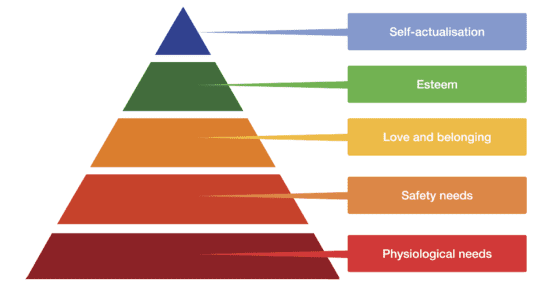
The epidemic of mental health
If people are aiming for the top, there certainly doesn’t seem to be a corresponding amount of happiness. To the contrary, the signs all point to worsening mental health. During the pandemic, the WHO reported that there was a 25% increase around the world in anxiety and depression [Source: WHO]. The WHO reports that there are over 700,000 suicides globally every year. Suicide is the fourth highest cause of death in the US among 18-24 year olds. These phenomena are being reported in many, if not all, first world countries and have continued to rise or stay elevated in the aftermath of the pandemic. Let’s take the UK for starters (where I’m based). Champion Health reported the following results in its 2023 study of over 4000 individuals, with 56% of those surveyed declaring at least mild symptoms of depression.
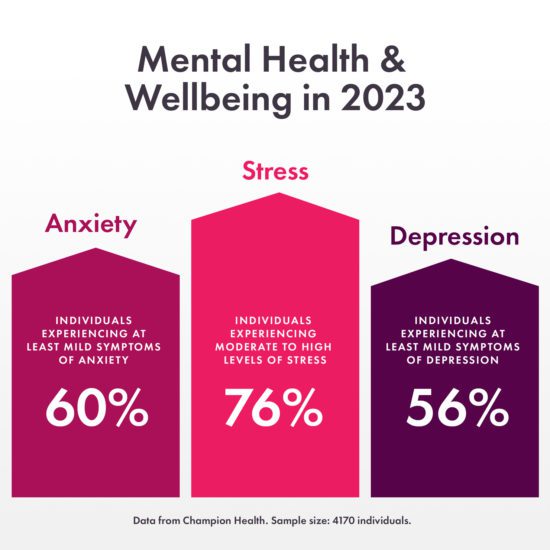
The avatar trap
So what’s going on? In a world where “everything is possible” and every feeling is warranted, it’s my contention that we have become increasingly unhinged, detached from the base reality of our existence. It’s what I call the Avatar Trap, where we pretend or strive for a higher, more perfect — even everlasting — status, but are bound for deception and disappointment. Not only are we being lured into this quest for self-actualisation, we’re trying to take short cuts and doing it wrong. In the Hindu religion, which gave rise to the concept, the avatar is the incarnation of a deity in human or animal form. Etymologically, it’s about ‘coming down’ from the high and almighty status of an abstract god. As recounted in Encyclopedia Britannica, “The doctrine appears in the Bhagavadgita in the words of Lord Krishna to Arjuna: “Whenever there is a decline of righteousness and rise of unrighteousness then I send forth Myself.” But, today, we human beings are the ones who are rising up, imbued with self-righteousness, and wishing to create our own avatars that, in the most emblematic cases, are designed to be worshipped, cf. influencers, transhumanists and others manically looking to cure the “disease” of aging. It’s a world completely turned upside down. As a result, in the extenuating pursuit of self-actualisation, it’s all about the self and is not very actual (i.e. real). In this quest, we are hyper focusing on the individual (individuation) at the expense of community and reality. Above and beyond self-actualisation, we are pushing for our own deification and wishing for immortality.
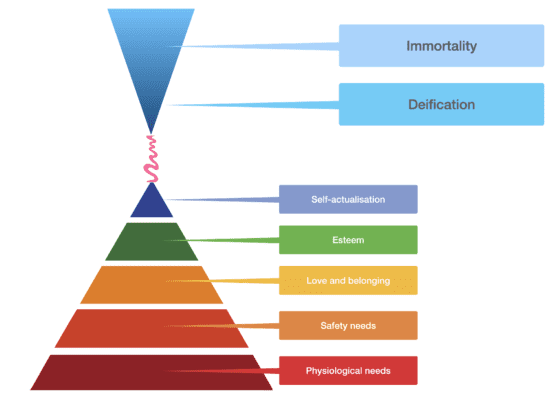
While I’m all for the notion of self-actualisation, it cannot and must not be at the expense of our community. At the third level in Maslow’s hierarchy of needs is the critical one of love and belonging. In order for us to survive, we must marry our need to stand out as an individual with our need to belong to a group. Let us be more aware of our imperfections, our need for one another and find purpose through service to others, and stay far away from the glorification or the deification of oneself. Being more conscious and accepting of our own mortality is a good starting point.

